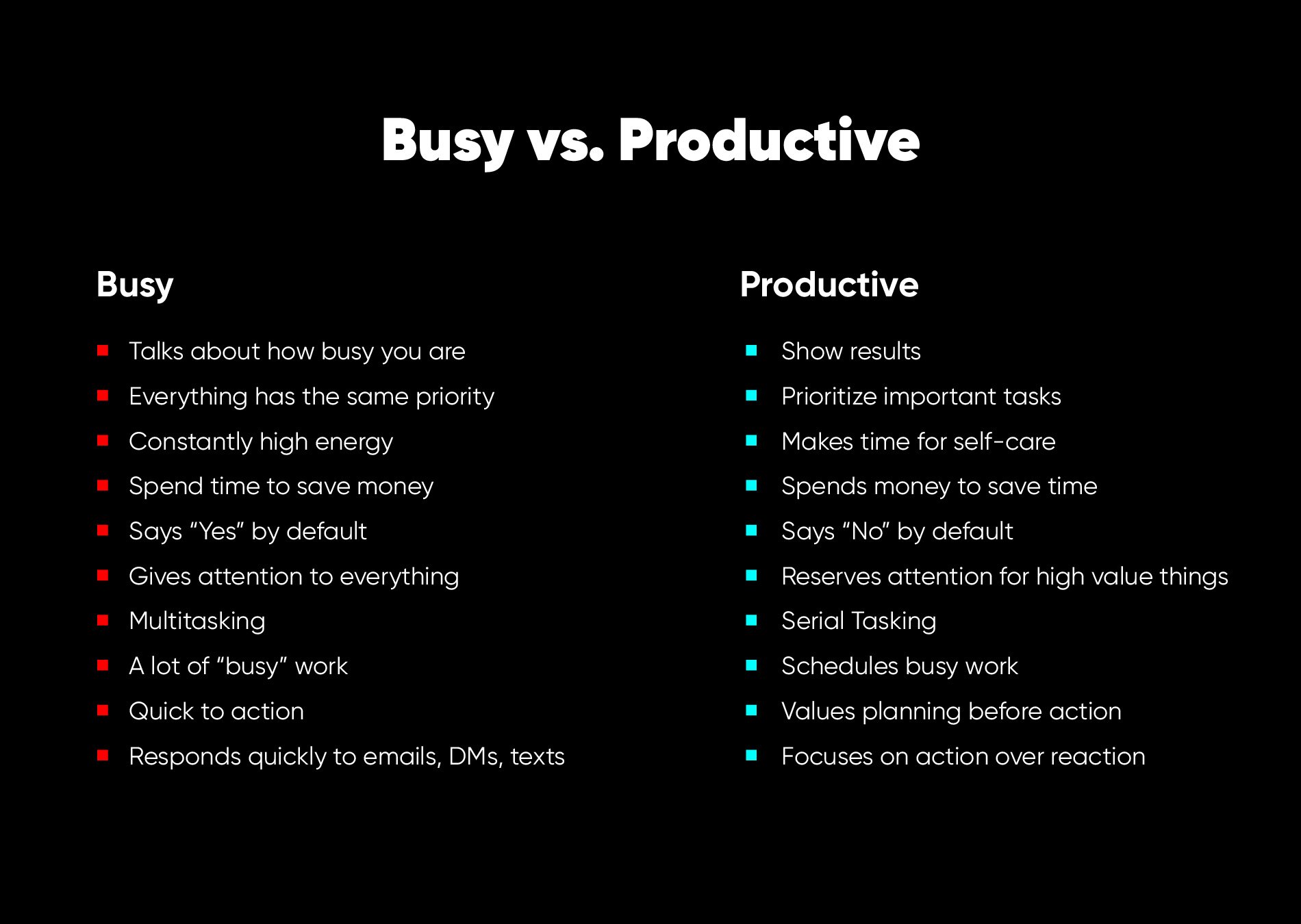MSP Mindshare: Ban the word "Busy"
You can now enjoy our content in audio format!
How many times have you asked someone why a task wasn't completed and the answer was, "Sorry I was really busy."
No one is immune to this. I'm sure you've used the busy excuse to justify not completing your own tasks too! I certainly have.
Busy is a useless adjective
The truth is that "busy" is a terrible excuse for not getting something done. If you were too busy to complete a task then that's just simply a matter of not prioritizing that task.
In many cases not completing that task could be appropriate. You didn't do your daily tasks checklist because you were dealing with a priority one client issue for five hours today. That's a good reason to not get the checklist completed.
The distinction is that you had other priorities that were more important. Not that you were simply "busy."
The next time someone tells you they were too busy to complete a task, have them tell you what they were busy with. The issue is usually a lack of organization or unclear priorities. Were you clear with the person about the task's priority and the deadline for that task?
If not, then work more closely with your team to be clear about deadlines and priorities in weekly 1-1s and daily huddles.
If you were clear, then spend time to help your team with organizing their tasks and time management.
“It is not enough to be busy. So are the ants. The question is: What are we busy about?” - Henry David Thoreau
Everyone is busy every day. Especially in IT. It's a chaotic and unpredictable field, but being "busy" can't be used as a get-out-of-jail-free card.
Ban the word busy with your team. Focus more on prioritization.
Priority management is key
Being clear about priorities is a very important first step. This is where goal setting helps to clarify priorities. On an annual and quarterly basis, you should be setting goals for your company - and you should be setting goals for your individuals as well.
Monthly you need to measure your results against your benchmark or your goals. This helps to create an accountability loop that helps keep you focused on your goals.
Productivity systems can help you
In my productivity course for MSP staff, I provide a simple framework for managing your week and your day to ensure you're setting yourself up for maximum success.
The framework is a simplified version of the Getting Things Done (GTD) methodology which has been highly influential on my personal productivity systems.
Another important point is to leverage a to-do list as well as a calendar. I find quite often people have a calendar but don't use it correctly. So here's a challenge for you. Right now, pause reading this blog post and open up your calendar. Review what is on your calendar this week and next, then come back to this post. I'll wait. ;)
..
..
..
So what did you see? How many of the meetings are high value for you and your goals? Probably not many!
“Show me your calendar and I’ll tell you what your priorities are.” - Todd Kane
The trouble is a calendar is often a list of other people's priorities. You need to make time on your calendar for your own priorities. Schedule meetings with yourself to work on the big tasks and strategic items that you have been procrastinating on. If you have a to-do list schedule 2-3 of those items in your calendar. This is how you can make space for the important work that feeds your goals and gets you ahead.
Productive vs. Busy
Here is a fantastic visual representation of what busy vs. productive looks like.

Image courtesy of Todd Kane, Evolved Management
Working harder isn’t the solution
Don't try to hero your way through your work. When you're feeling overwhelmed it's not the time to do more. It's time to stop, step back, reflect on your priorities and start creating more proactive time for the important tasks you have on deck.
Being able to measure your progress and point to your achievements is far more important than how "busy" you are.
#BANBUSY
I like the suggestion in the graphic to focus more on your results rather than talking about or complaining about how busy you are.
Burnout is a growing issue in business as the psychological impacts of the pandemic start to catch up to us.
Here is a brief article on the growing risk of burnout in the IT industry. There are some important reflections on the issue, including this stat:
"54% of the workforce describes themselves as exhausted, according to a Blind survey of 2,200 professionals." - CIODive.com
If you want the TL;DR of the article, it's that people are stressed, and it's up to you as management to help them; increasing empathy and communication are the key. Focus on helping staff prioritize their work. Build systems and processes that support focusing on the work that leads to your stated goals.
“Busy” is a crutch. Ban the word busy and get focused on results.
The momentum this builds will create a flywheel effect that can protect your team from burnout while increasing productivity. In time your team will shift away from telling you how busy they are to how productive they’ve been.
About the author
 Todd Kane has spent over a decade developing a management framework to help managed service providers increase their margins and reduce employee turnover. His company, Evolved Management, provides guidance and resources to enable MSPs to reach their full potential.
Todd Kane has spent over a decade developing a management framework to help managed service providers increase their margins and reduce employee turnover. His company, Evolved Management, provides guidance and resources to enable MSPs to reach their full potential.
Follow Todd on LinkedIn
About MSP Mindshare
The MSP Mindshare series invites MSP experts to share their perspectives, wisdom and insight into the burning issues that impact the IT Channel.
Let's take the hassle out of reconciling your vendor usage each month.
Want to learn more how Gradient ensures yours PSA contracts always reflect accurate vendor counts for monthly billing?
Book a meeting